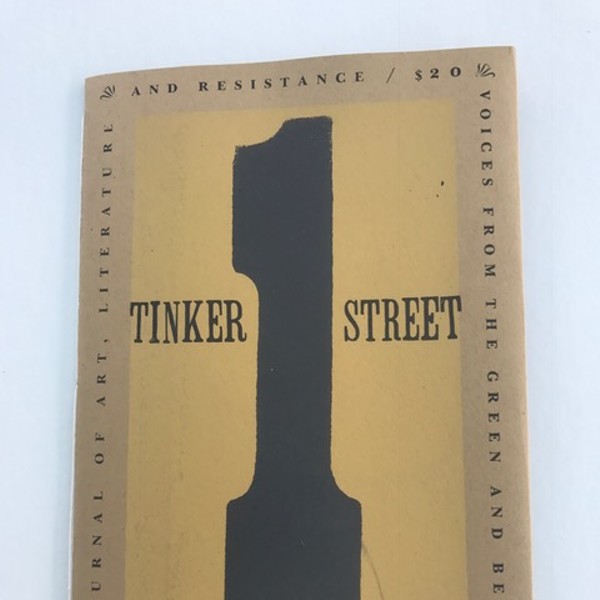It was a perfect place to meet author Naton Leslie: a coffeehouse in a renovated building, where you sit in secondhand chairs, drink out of paper cups, and are surrounded by aged black-and-white photographs of Ballston Spa, New York. Our view looked into the kitchen, where people were washing dishes and making sandwiches. It could have been the location of so many of Leslie’s stories, essays, and poems.
Leslie has been called “the poet of a forgotten America,” and a “poet of the working class.” Through five collections of poetry, a short story collection and a nonfiction book, the author has celebrated the overlooked, the commonplace, the tossed-aside.
“I love old things because they contain stories,” he says, picking up a decorative blue saucer on a nearby windowsill. “Like this old saucer. It’s hand-painted in Japan. See this insignia on the back—Nippon—that means it was made post-World War II, when Japan was occupied and struggling to get back on its feet. It was hand-producing stuff for the West. The Japanese were trying to reinvent themselves. There are many stories in this one object. There’s the story of Japan, and the person who made it, and how this saucer found its way to a coffeehouse in Ballston Spa.”
“Too often, we live our lives just walking by things and not noticing,” says Leslie, which was one of the reasons he wrote That Might Be Useful: Exploring America’s Secondhand Culture, his 2005 chronicle of flea markets, tag sales, auctions, and antique shops. “I decided years ago to buy only secondhand goods when I needed something, and in that book I explored an America that shared my love for old, used things,” he says. “It’s an America that hasn’t been bought, sold, and advertised.”
Leslie’s interest in used things began out of economic necessity, but continues for philosophical reasons. “It was also my rejection of the rampant materialism of this country,” he says, and the impersonal style of commerce it fosters. It’s a point he emphasizes in That Might Be Useful:
“Entranceway greeters notwithstanding, new retailing is faceless: for the most part, customers serve themselves, aided by overhead signs and well-organized merchandise. Soon, if the trend toward a cashless society continues, we will not even get a ‘thank you’ when paying our money. Clerkless debit-lines are appearing, and the personal touch is going the way of the bank teller or gas pump attendant. Buying used goods, in contrast, is a gregarious enterprise. From haggling to appraising the flaws and virtues of an item for sale, used buying and selling is more akin to the traditional bazaar; it’s no wonder flea markets or swap meets thrive in areas with large numbers of new immigrants from cultures that still have vibrant and personal markets. Whether in the antique trade or holding a once-a-year yard sale, most of the sellers I have met agree that meeting people is part of the attraction.”
“Buying secondhand is also a bit of a rebellion against my parents and their generation,” admits Leslie, who was born in 1955. “They came of age after World War II. They grew up with rationing and then along came the 1950s and the economic boom. Everything was new and improved. My parents fell right into that. If they bought something that was of inferior quality they’d say, ‘Well, at least it’s new.’ ”
Despite his instinct for rebellion, Leslie embraces his past, which is solidly blue collar. His father was a factory worker, and his mother worked as a bank teller. Many of his stories take place in working-class factory towns, with characters who are decent men and women struggling to find happiness. “But I don’t idealize the working class,” says Leslie. “There’s an anti-intellectual belief that is very prevalent in that world. I’ve always been confronted by people in my hometown of Athens, Ohio, who have said ‘I’d rather have common sense than an education.’ My response to them is that a person who would prefer one or the other is usually lacking in both.”
America is a place where it’s still possible for a working-class kid to study literature and become, as Leslie did, both an honored author and an academic (he teaches English and creative writing at Siena College in Loudonville, New York). But movin’ on up is also fraught with emotional baggage. “I once told a friend, ‘Don’t pull out your roots or your roots will pull back,’ ” Leslie recalls. “I was the first generation of my family to go to college. I worked as an auto mechanic in college, and now I’m a professor and a writer. I’ve always struggled with living in these two different worlds.”















